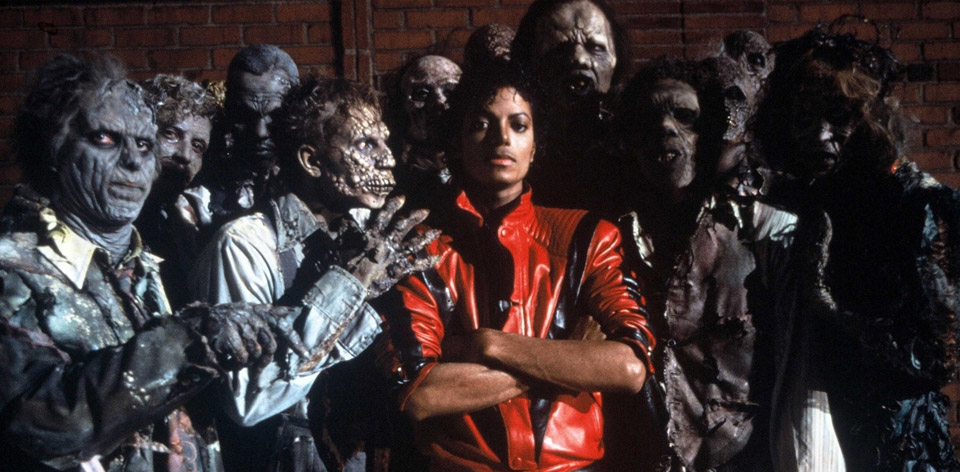Michael Jackson: Thriller
No album, movie, or book should ever have to live up to the expectations attached to the label “biggest selling of all time.” Luckily for Michael Jackson’s Thriller, that moment has passed and it’s just a matter of time before the same is true for James Cameron’s Titanic (the Bible, however, will have to deal with its popularity on its own terms). It seems that moving over 40 million units of an album (that also won a then-record number of Grammies) has had a stifling effect on Jackson’s career. It’s difficult to separate Jackson’s 1983 coronation as the new “King” (or his inevitable descent from that throne) from the music on Thriller. On the other hand, it’s possible these things give a sense of character to what was, like most Quincy Jones productions, just another Epic pop monolith. In fact, perhaps a comparison to one of Q’s other early-’80s productions is key to grasping the extent to which Jacko’s star persona impacts a Thriller spin.
Take Donna Summer’s self-titled 1982 album, which is comprised of almost the very same ingredients as Thriller. Both are built on a foundation of smooth, L.A. dance-R&B, an uncharacteristic dalliance with the rock idiom (“Protection” for Summer, “Beat It” for Jackson), and a side-one-closing expansive (no, make that cinematic) blockbuster. And of course, both albums are filled with what can be best described as flawless, melodic pop. The lush disco paradise of Jackson’s “Baby Be Mine” and “P.Y.T. (Pretty Young Thing)” both hint that the “death to disco” proclamations were sure to be temporary. The growling stomp-lite of “Thriller” and “Billie Jean,” both marked by Q’s fuzzy synthesized basslines, weaned millions of unsuspecting children onto low-end funk even as Prince was experimenting with bass-deficient funk. The buttery harmonies of “Human Nature” (probably the best musical composition on the album and surely one of the only A/C ballads of its era worth remembering) were so powerful that no less a legend than Miles Davis recorded a studio jazz cover of the song. Summer’s eponymous album is about Donna as much as it is about carrots and lettuce and the mystery of love. But Thriller does more than just announce Michael’s arrival as a pop superstar (he was already there)—it’s about his arrival in the same way his sister’s Control was about the arrival of Janet, period.
With three quick rimshots, “Wanna Be Startin’ Somethin'” is like the court fanfare. What is a seemingly silly fight song is actually a complicated tapestry of colliding hooks and pop references. Jackson starts with his own collection of non-sequiters (“You’re a vegetable,” “My baby’s slowly dying”) and puts them in the context of other borrowed quips. (“Too high to get over, too low to get under” is almost an exact copy of Funkadelic’s opening salvo for “One Nation Under a Groove,” and anyone who loved Manu Dibango’s underground disco hit “Soul Makossa” knows where the holy-rolling “Mama-say mama-sah ma-ma-coo-sah” came from.) By combining the hooks of earlier black pop benchmarks with his own, it’s as if Jackson was suggesting that everything in pop history was setting the stage for his arrival. One wonders if Jackson’s statement in a recent TV Guide interview that he is no longer satisfied with the way “Wanna Be” turned out is less a comment on the quality of the song than it is about the unsatisfactory implications it has for a man whose career afterglow seems scarcely worth a “coo-sah.” Think Norma Desmond watching her own youthful glory in isolation. Thriller is still big, and Jackson’s getting small only serves to highlight its pop (musical and cultural) achievements.
BY ERIC HENDERSON ON OCTOBER 18, 2003

